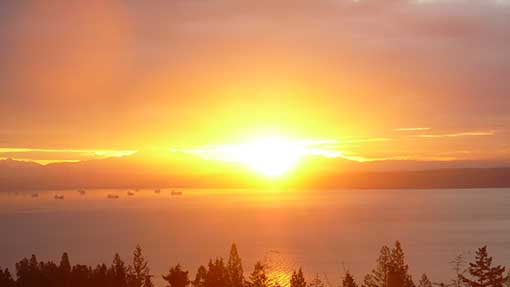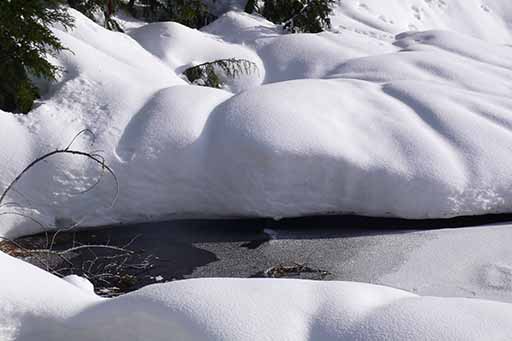Something to keep in mind…
Greta practices what she calls “shop stop.”
…
It means you don’t buy new things
…
unless you absolutely have to.
..

STOP SHOP
Our Town 10-10-19
In addition to going vegan and convincing her family to stop flying, in her private life Greta practices what she calls “shop stop.” It means you don’t buy new things unless you absolutely have to. She wears what she already has, or borrows clothes from her younger sister, her mom or her dad, whoever. It’s so not the point that her lack of fashion quietly makes its own point.
Shop stop. It had a name! It’s a philosophy I’ve practiced for myself for eight or so years. Other than underwear and footwear, I buy myself only secondhand clothes and nab hand-me-overs from relatives and friends. But honestly, I had started to slip, making excuses each time. Like, It’s not worth hurting my image professionally, just for the impact of one outfit.
Wear Clothes? Then You’re Part of the Problem: Making, washing and tossing apparel has a big environmental cost.
NYT 11-3-19
The clothing and footwear industry is responsible for 8 percent of global greenhouse gas emissions, nearly the same as the entire European Union, according to a study by the environmental services group Quantis. Without abrupt intervention, the industry’s impact on the climate is on track to increase by almost half by 2030.
Let’s say you wear a cotton T-shirt — it required thousands of gallons of water to make. If that T-shirt is viscose rayon, it may well have come from a tree felled in the Amazon (viscose rayon is made from plants). And if it’s polyester, acrylic or nylon, you’re wearing plastic. When those plastic clothes get washed, they junk up our oceans with microplastic pollution.
Climate Change and Capitalism
Resilliance 7-11-19
The economy, the energy system and the environment have evolved together. They draw on one another, passing materials between them and absorbing one another’s wastes. All economic activity ultimately rests on the transformation of material resources. These must be drawn from the environment and then worked by labour. …
Without fossil fuel deposits, capitalism could not have become the dominant force it is today. Similarly, without capitalism, fossil fuels may never have become the backbone of the economy. …
Because of the structural drivers towards growth that we see under capitalism, it is extremely unlikely that capitalism can avoid catastrophic climate change. The structural drive for growth means that efforts to reduce carbon emissions will be overwhelmed by the expansion of economic activity. This is controversial to most mainstream environmentalists (and to many socialists). But it is the clear experience of the history of capitalism.
To date, resources have not been conserved under capitalism. Rather when we become more efficient or find new resources, this frees up resources that are used by other parts of the capitalist machine.
Can capitalism prevent catastrophic climate change?
ISR November 1912
A global energy revolution is required, replacing very profitable fossil-fuel systems with renewables that are not yet cost effective in capitalist terms. An economy in which investors demand short-term profits simply can’t carry through such a sweeping change: “In the short period of forty years which is left to us, one cannot envisage how the system could instigate a transition in energy use at the necessary or possible level with its mechanisms of price, competition and the market,” he writes. …
In other words, new technology alone won’t protect the climate, because the very process of manufacturing and installing it will increase emissions during the transition. That important insight is rarely mentioned by the “technology will solve all problems” crowd.
UN’s Solution to Climate Change: End Capitalism
Daily Signal 10-19-18
The latest United Nations Intergovernmental Panel on Climate Change report … “The world’s top scientists just gave rigorous backing to systematically dismantle capitalism as a key requirement to maintaining civilization and a habitable planet.”
The sentiment is not new. Three years ago, while pushing for the Paris Climate Accord, U.N. climate official Christiana Figueres described the strategy this way:
“This is the first time in the history of mankind that we are setting ourselves the task of intentionally, within a defined period of time, to change the economic development model that has been reigning for at least 150 years, since the Industrial Revolution.”
Survival of the Richest
One Zero 7-5-18
That’s when it hit me: At least as far as these gentlemen were concerned, this was a talk about the future of technology. Taking their cue from Elon Musk colonizing Mars, Peter Thiel reversing the aging process, or Sam Altman and Ray Kurzweil uploading their minds into supercomputers, they were preparing for a digital future that had a whole lot less to do with making the world a better place than it did with transcending the human condition altogether and insulating themselves from a very real and present danger of climate change, rising sea levels, mass migrations, global pandemics, nativist panic, and resource depletion. For them, the future of technology is really about just one thing: escape. …
But the more devastating impacts of pedal-to-the-metal digital capitalism fall on the environment and global poor. The manufacture of some of our computers and smartphones still uses networks of slave labor. These practices are so deeply entrenched that a company called Fairphone, founded from the ground up to make and market ethical phones, learned it was impossible. (The company’s founder now sadly refers to their products as “fairer” phones.)
Meanwhile, the mining of rare earth metals and disposal of our highly digital technologies destroys human habitats, replacing them with toxic waste dumps, which are then picked over by peasant children and their families, who sell usable materials back to the manufacturers. …
Being human is not about individual survival or escape. It’s a team sport. Whatever future humans have, it will be together.

HOT AIR NEWS ROUNDUP
This Week’s Highlights
Madrid to host Cop25 climate talks in December after Chile withdraws
Climate Change News 11-1-19
The Spanish government offered to hold the UN’s annual circus of thousands of diplomats, politicians, campaigners, journalists and business leaders in its capital on Thursday, following Chile’s announcement it could no longer be the venue. The Polish Cop24 president Michal Kurtyka announced the news on Twitter on Friday. Chile’s environment minister Carolina Schmidt, who will remain Cop25 president despite the change of venue, said UN Climate Change had confirmed the news.
The decision to change venues ultimately lay with the UN Cop bureau, a 12-member panel of climate diplomats drawn from across the world and chaired by Kurtyka. They met on Friday and accepted Spain’s offer.
Fracking halted in England in major government U-turn
The Guardian 11-2-19
The government has halted fracking in England with immediate effect in a watershed moment for environmentalists and community activists. Ministers also warned shale gas companies it would not support future fracking projects, in a crushing blow to companies that had been hoping to capitalise on one of the new frontiers of growth in the fossil fuel industry.
The decision draws a line under years of bitter opposition to the controversial extraction process in a major victory for green groups and local communities. The decision was taken after a new scientific study warned it was not possible to rule out “unacceptable” consequences for those living near fracking sites.
Trump begins year-long process to formally exit Paris climate agreement
The Guardian 11-4-19
Donald Trump is moving to formally exit the Paris climate agreement, making the United States the only country in the world that will not participate in the pact, as global temperatures are set to rise 3C and worsening extreme weather will drive millions into poverty.
Twitter’s new policy will ban green groups’ climate ads, but still allow ExxonMobil to post ads about a biofuel that isn’t going to be commercially viable for at least another decade…
Here’s why Twitter’s political ad ban gives Big Oil a free pass
Grist 11-4-19
Twitter’s decision, which will take effect on November 22, was hailed as a win for democracy and civic discourse. … But there’s a significant downside to Twitter’s decision.
… Twitter’s new policy gives oil and gas companies a leg up, and the folks who want to regulate those companies a kneecapping.
… In recent years, Big Oil has finally wiped the smog off its glasses and read the writing on the wall: the public knows that a shortlist of multinational corporations are responsible for the lion’s share of the world’s planet-heating emissions. So those corporations shifted tactics lickity-split.
Instead of denying that climate change exists, fossil fuel companies want you, and government regulators, to think that they’ve changed their oily ways.
ExxonMobil says it’s investing heavily in developing a clean biofuel from algae. Shell produced several climate change manifestos with hopeful titles like “the Sky scenario” that it says have the potential to stop climate change. Chevron is saving turtles in the Philippines.
70 percent of the people currently at risk are in eight Asian countries: China, Bangladesh, India, Vietnam, Indonesia, Thailand, the Philippines, and Japan as early as 2050…
The Coming Flood: A Data Error Is Corrected, and Our Future Is Rewritten
Rolling Stone 10-31-19
One largely overlooked variable is the actual elevation of land along the coast, as well as how many people live there. After all, when it comes to sea level rise, what matters is not just how high the water rises, but how high the land is where the water rises. Three feet of sea level rise in South Florida, which is low and flat and densely populated, will have a much greater impact than three feet of sea level rise along the high, rocky, sparsely-inhabited coast of Oregon or Maine. For years, scientists have known that coastal elevation measurements have been approximate.
… There was no publicly available LIDAR data for Asia, Africa, and the Middle East, making it difficult for scientists to accurately calculate risks of sea level rise in those regions. … When they re-analyzed the space shuttle data with the new model, the results were astonishing. And not in a good way.
Scientists foresee ‘untold suffering’, another climate record falls
PHYS ORG 11-5-19
More than 11,000 scientists warned Tuesday of “untold suffering” due to global warming, even as another team said Paris carbon-cutting pledges are “too little, too late”.
… Three-quarters of national commitments under the Paris climate accord to curb greenhouse gases will not even slow the accelerating pace of global warming, according to a report from five senior scientists.
… “With few exceptions, the pledges of rich, middle-income and poor nations are insufficient to address climate change,” said Robert Watson, who chaired both the UN Intergovernmental Panel on Climate Change (IPCC) and the UN’s science body for biodiversity. “As they stand, the pledges are far too little, too late.” In parallel, more than 11,000 scientists sounded a five-bell alarm in the peer-reviewed journal BioScience, noting that the world had failed to act on global warming despite the accumulation of evidence over 30 years.

ADAPTION AND RESILIENCE
To ensure green infrastructure has a long future, experts are tackling the maintenance needs of the installations as they arise — often as surprises — and are working to formalize project care as an official job…
Our Future Will Require Green Infrastructure. Here’s How We Can Build It.
Truthout 11-3-19
Other cities building similar stormwater management tools are reaching this conclusion, too. The U.S. Environmental Protection Agency (EPA) defines green infrastructure as an installation that “uses vegetation, soils, and other elements and practices to restore some of the natural processes required to manage water and create healthier urban environments.”
Things like porous parking lots, wetlands, green roofs and rain gardens can help reduce flooding in neighborhoods and on roadways. Cities from Philadelphia to Detroit to Atlanta are installing green infrastructure. The success of these installations, however, hinges on vegetation and underlying filtration systems being in good shape — a status that has been surprisingly difficult to achieve.
Potential Influence of Climate Change on Grain Self‐Sufficiency at the Country Level Considering Adaptation Measures
AGU 8-29-19
In recent decades, grain self‐sufficiency has been a key security issue for certain countries, such as Russia, China, India, and France. Climate change may affect agricultural production and possibly influence the grain self‐sufficiency of some countries, threatening their food security.
This article provides an updated integrated assessment of the impact of climate change on grain self‐sufficiency at the country level.
Recycling plastic bottles is good, but reusing them is better
PHYS ORG 11-5-19
Plastic packaging, most of which is for food and beverages, is the fastest growing category of plastic use. In Australia less than 10% of this plastic packaging is recycled, compared with 70% for paper and cardboard packaging. Of the seven categories of plastic, recycling of water bottles (PET) and milk bottles (HDPA) is most effective, yet recycling rates remain relatively low, around 30%.
Other hard plastics (PVC, PS) and soft or flexible plastics, such as clingfilm and plastic bags, present significant challenges for recyclers. In the case of soft plastics, although recycling options are available, the use of additives known as plasticisers—used to make the hard plastic soft and malleable—often make products recycled out of soft plastics weak, non-durable, and unable to be recycled further.
Some researchers argue recycling actually represents a downgrading process, as plastic packaging is not always recycled into new packaging, owing to contamination or diminished quality.
Giant Water Battery Cuts University’s Energy Costs by $100 Million Over Next 25 Years
EcoWatch 11-4-19
The Queensland university’s ambitious target date got a boon from the success of the experimental battery, which was turned on in September and now generates enough power to power the campus’ air conditioning system, reducing dependence on the grid by 40 percent, as New Atlas reported.
The giant battery harnesses power from over 6,000 solar panels that line the rooftops of the campus’s buildings. It then uses that power to cool water, which is then used in the school’s air conditioning system. The battery is expected to save $100 million electricity costs over the next 25 years and to prevent 100,000 tons of CO2 from being emitted into the atmosphere.

LEGISLATION, ELECTIONS & POLICY
Chile Pulls Out of Hosting COP25 Following Weeks of Protests
EcoWatch 10-31-19
Chile will no longer host the COP25 UN Climate Change Conference, where countries were scheduled to gather in December to discuss the implementation of the Paris agreement, BBC News reported.
Berkeley law bans natural gas from some new residential buildings
Yale Climate Connections 11-1-19
Kate Harrison is a city council member in Berkeley, California. She was surprised to learn that burning natural gas in buildings produced more than a quarter of her city’s greenhouse gas emissions. “Generally, when people think about climate change, they think about cars and factories,” she says, “so I was stunned to find out that this large proportion was coming out of residences, offices, etc.
That motivated us to look at how we could tackle that issue.” So she helped pass a new law in Berkeley. Starting next year, the city will ban the use of natural gas in new residential buildings under five stories. The law will eventually apply to larger buildings and commercial construction, too.
Thousands of Britons invited to climate crisis citizens’ assembly
The Guardian 11-2-19
Thirty-thousand people across the UK have been randomly chosen to take part in a citizens’ assembly on the climate emergency convened by MPs. Invitations to the assembly, which will be held over four weekends in Birmingham from January to mid-March, are due to arrive from Wednesday next week.
Only 110 of the 30,000 people will take part in Climate Assembly UK, at which they will be asked to discuss how the UK should respond to the climate emergency and what policies they would like to see implemented to meet the target of net-zero carbon emissions by 2050, now enshrined in law. Those selected to take part will be demographically representative of the country.
Brazilian president’s son suggests using dictatorship-era tactics on leftist foes
The Guardian 11-1-19
Voices from across Brazil’s political spectrum have condemned the son of the far-right president, Jair Bolsonaro, after he suggested hardline dictatorship-era tactics might be needed to crush his father’s leftist foes.
Eduardo Bolsonaro made the incendiary remarks – which many observers suspect were a deliberate distraction from renewed media speculation over the family’s links to organized crime – during a softball YouTube interview broadcast on Thursday.
In the interview the 35-year-old congressman claimed – without offering evidence – that the recent wave of Latin American protests and the left’s return to power in Argentina were part of a Cuba-funded conspiracy to bring “revolution” to Latin America.
Good read…
Kentucky’s Leaders Are Siding With the Coal Industry, and Its Poorest Residents Are Paying a Price
Mother Jones 10-28-19
Nine of the 10 states that emit the most heat-trapping carbon dioxide pollution per person helped block the Obama-era Clean Power Plan, which would have been the largest effort by the U.S. government to limit climate change. Four of those states, including Kentucky, were among those most often hit by disasters in the past 10 years—generally powerful storms, which science shows are worsening as the planet warms.
… In some parts of Kentucky, residents say they believe the state’s treatment of coal has increased the risk of disasters in yet another way. Consider the Harless Creek flood that threatened Bentley’s life.
Water rushing down the hills from mines—including one the state had allowed to operate on an expired permit—intensified damage from the pounding rain, according to an engineering study prepared for a lawsuit. Afterward, the state cited two companies for violating laws intended to protect people living nearby.
EPA Career Staffer Says Trump Has Effectively Immobilized the Agency
Truthout 11-2-19
The change that the Trump administration brought is the most devastating change that has ever been wrought on EPA. My first administration was [George Herbert Walker] Bush. That was really the administration that was the most free of any political interference that I’ve ever worked under.
Each administration after that had slight differences and slight biases based on politics. But you really didn’t feel that constrained, it was minor. It’s so different now under the Trump administration, where every single matter that you might bring has a political tinge to it and you cannot bring a case under this administration that there isn’t some kind of issue that is going to raise alarm bells.
It seems like things have basically come to a standstill here. There are just so many hoops to jump through that it’s very difficult to bring enforcement cases.
How to make the Green Climate Fund a better force for change
Climate Home News 10-28-19
Rich countries gathered in Paris last week to make pledges to the UN Green Climate Fund (GCF). Now they should seize an opportunity to enhance the fund’s unique capabilities. The GCF is critical in helping developing countries implement their obligations under the Paris Agreement.
In its brief existence, the fund has mobilised $5 billion for climate action in nearly 100 countries, which will avert 1.5 billion tonnes of CO2 and help more than 310 million people thrive.
Impressively, given the glacial pace of international development, more than half of GCF projects are already being implemented.
With the fund’s resources now almost exhausted and the window of opportunity to act on climate change narrowing rapidly, its ability to support transformative climate action in countries most in need should be optimised.

THE FIRES
Climate protesters occupy Pelosi’s office over California fires
The Hill 10-30-19
During the sit-in, the group of 50 activists from the Sunrise Movement demanded the California Democrat move forward with the Green New Deal.
The protesters argued that the legislation is desperately needed as the country begins to feel the effects of climate change, citing intensifying wildfires in the senator’s state. The group also momentarily occupied the office of Sen. Dianne Feinstein (D-Calif.).
“We’re focusing on the California wildfires because it is one of the predominant examples of how the climate crisis is taking shape and taking immediate form and impacting everyday Americans,”
In the Amazon, Fires Steal Breath, but Smoke Smells of Money: The thousands of fires set to clear land for cattle in Brazil’s rainforest are widely seen as an environmental disaster. Local ranch hands have more conflicted feelings.
NYT 11-2-19
For a very select few, however, the smoke is the smell of money: Many of the these fires were started by ranch owners, a powerful force in the Brazilian economy, as a way to clear land for more grazing for their gigantic cattle herds.
About 200 million heads of cattle are raised in Brazil, with an estimated 173,746 square miles of forest converted to cattle pasture over recent decades, according to the Yale School of Forestry. Experts blame cattle ranching for up to 80 percent of the Amazon’s deforestation in recent years, which has led to international environmental campaigns to pressure meatpackers to forsake purchasing cattle from ranches involved in such burnings.
… But there is an enormous loophole around this promise: Cattle are frequently “laundered” in the supply chain, often born on a farm where the forest was illegally cleared, and fattened on another ranch recently formed by a fire, before being sold to a final ranch that abides by Brazilian law and international environmental conventions.
Most of the beef produced is consumed domestically, although there are substantial exports, especially to China.

THE ARCTIC
Abrupt shifts in Arctic climate projected
Science Daily 10-30-19
Researchers project that as the permafrost continues to degrade, the climate in various regions of the Arctic could potentially change abruptly in the relatively near future. Their research also suggests that as the permafrost degrades, the severity of wildfires will double from one year to the next and remain at the new and higher rate for regions in the Northwestern Territories and the Yukon.
Unraveling the History of Avalanches in Juneau
Scientific American 10-31-19
In a low-flying helicopter, Gabriel Wolken is scanning the steep hillsides around southeast Alaska with a purpose. A research-grade laser mounted to the helicopter sends rapid pulses of light from the aircraft to the ground to measure the elevation of trees and the bare earth below.
Like a price scanner registering elevation instead of barcodes, it compiles a detailed map of the features of the landscape—information that will be needed to determine snow depth from the air come winter. Understanding snow patterns is a crucial part of Wolken’s work with the Alaska Climate Adaptation Science Center.
… Nowhere is this work more important than in the capital city of Juneau, which has the highest urban avalanche potential of any city in the country.
Thawing permafrost to trigger sudden shift in Arctic climate, models predict
UPI 10-30-19
New climate models suggest the Arctic climate could experience abrupt shifts as thawing permafrost fuels a variety of disruptive feedback loops.
… “Arctic infrastructure is particularly impacted by permafrost degradation and associated soil moisture changes, among other factors,” Laxmi Sushama, a professor of civil engineering at McGill, said in a news release. “As we started analyzing more closely climate model simulations for the Arctic region, we noticed abrupt changes in soil moisture, as well as abrupt increases in intense rainfalls with a probable increase in lightning and wildfires too.”
… While rising air temperatures are likely to remain the major driver of climate change in the Arctic, the latest research offers a reminder of the many feedback loops that can trigger abrupt climate and ecological shifts in the region.
FOSSIL FUELS
The spill was reported just hours after a key environmental assessment hearing on plans for another controversial pipeline, Keystone XL…
Keystone Pipeline Spills 383,000 Gallons of Oil into North Dakota Wetlands
Inside Climate News 11-1-19
The Keystone Pipeline spilled as much as 383,000 gallons of crude oil into rural wetlands in North Dakota this week before the pipeline was shut down, making it one of the largest oil spills in the country in the past decade, state officials confirmed on Thursday.
The spill had been reported just hours after an environmental assessment hearing for the controversial Keystone XL pipeline, a separate crude oil pipeline being built by the same company—TC Energy, formerly TransCanada.
Scramble for propane marks Mother Nature’s latest challenge for U.S. farmers
Reuters 11-5-19
Months after historic floods ravaged the U.S. Midwest, farmers scrambling to harvest their crops face a new headache: finding fuel to dry their soaked grains.
Normally, farmers use propane as fuel for grain dryers to reduce moisture levels in corn crops to ready for sale or to safely store the grain. But the extraordinarily wet spring delayed planting, and a waterlogged fall delayed harvesting and produced wet crops. That caused a surge in propane demand among crop farmers, even as livestock producers are buying to keep their barns warm and rural homeowners try to heat their homes – all of which is straining aging infrastructure used to deliver that fuel.
And keeping people and animals warm takes precedence over grain drying.
… “Everyone is trying to harvest all at the same time, and they need more propane to keep their dryers running,”
Flood of Oil Is Coming, Complicating Efforts to Fight Global Warming
NYT 11-5-19
A surge of oil production is coming, whether the world needs it or not. The flood of crude will arrive even as concerns about climate change are growing and worldwide oil demand is slowing.
And it is not coming from the usual producers, but from Brazil, Canada, Norway and Guyana — countries that are either not known for oil or whose production has been lackluster in recent years.
This looming new supply may be a key reason Saudi Arabia’s giant oil producer, Aramco, pushed ahead on Sunday with plans for what could be the world’s largest initial stock offering ever.
Together, the four countries stand to add nearly a million barrels a day to the market in 2020 and nearly a million more in 2021, on top of the current world crude output of 80 million barrels a day. That boost in production, along with global efforts to lower emissions, will almost certainly push oil prices down.
And I have a bridge to sell you…
U.S. ingenuity can tackle climate threat, fossil energy chief says
Reuters 11-5-19
The United States can tackle threats to the climate through technological advances as fossil fuels will remain a priority for the U.S. government and business, the assistant secretary for fossil energy said on Tuesday.
The world should look to the United States’ ability to reduce its emissions, the Department of Energy’s Steven Winberg said at an oil conference in South Africa a day after the Trump administration formally moved to exit the Paris Agreement.
Coal Ash Is Incredibly Toxic. Trump’s EPA Just Made it Even Harder to Control.
Mother Jones 11-4-19
Renewable energy is taking up more of the United States’ power grid, and despite the best efforts of the Trump administration, the days of coal’s dominance appear to be numbered.
Nonetheless, the administration continues to try and reverse the industry’s decline and crisis of solvency by enacting policies as if fossil fuels were the still an engine of America’s economic future.
This week brought another example: The EPA announced plans to loosen two Obama-era rules that dictate how coal-burning power plants should dispose of their toxic waste, known as coal ash. A typical plant produces more than 125,000 tons of coal ash every year.
Study: Here’s what oil giants need to do to avoid climate catastrophe
Grist 11-2-19
The world’s largest oil and gas companies need to slash their production by more than a third by 2040 to meet global climate targets, according to a new report.
The seven listed oil majors — including ExxonMobil, BP, and Shell — would need to cut the total amount of oil and gas they produce every day by 35 percent to avoid driving temperatures 1.5 degrees C higher than pre-industrialized levels.
Global governments would also need to stop issuing new oil and gas licenses for fossil fuel exploration, according to the report. The study was produced by Carbon Tracker, a financial think tank, using publicly available oil company data to measure their carbon footprints today and by 2040.
Shale gas fracking wasted ‘millions of taxpayers’ cash’, say scientists
The Guardian 11-3-19
“Fracking is utterly incompatible with our aims of ending the burning of fossil fuels in this country in a couple of decades,” said geologist Professor Stuart Haszeldine, of Edinburgh University.
“Pursuing the technology of fracking while embracing the concept of having a carbon-free society is an example of national schizophrenia.
It has wasted millions of pounds of taxpayers’ money. It has also wasted a decade when we should have been pursuing other goals.”
One such aim should have been the development of the technology of carbon capture and storage which would involve carbon dioxide being captured, liquefied and stored underground in old mines or depleted oil reservoirs, added Haszeldine.
“We have lost significant leads in developing this technology over the past decade when we should have been pursuing them energetically. Instead we have wasted our time on fracking projects.”
WEATHER
October 2019: A Month of Extreme Weather for the U.S.
Category Six 11-1-19
For those interested, the hottest October temperature ever measured anywhere in the U.S. was 117°F (47.2°C) at Mecca, California, on Oct. 2, 1980. This is not far from the world October record of 48.6°C set at Vredendal, South Africa, in 2015, according to weather records researcher Maximiliano Herrera.
Large portions of the world saw all-time record October heat this past month.
…Like a thermal and geographic bookend to the eastern heat in early October, an exceptionally cold air mass invaded the western and midwestern portions of the country on the last five days of the month.
Although not an official NWS site, the experimental weather station at Peter Sinks, Utah measured a low of -46.1° on the morning of Oct. 30 (the previous coldest October temperature at this site was -35° in October of 2002). This was less than 2° shy of the Alaskan (and U.S.) October record of -48° set at Clearwater on October 31, 1975.
Why are big storms bringing so much more rain? Warming, yes, but also winds
Science Daily 10-29-19
For three hurricane seasons in a row, storms with record-breaking rainfall have caused catastrophic flooding in the southern United States. A new analysis explains why this trend is likely to continue with global warming: Both the higher moisture content of warmer air and storms’ increasing wind speeds conspire to produce wetter storms.
Record Low Temps, Up To 50 Degrees Below Normal, Threaten To Wreck Rest Of Harvest Season
Zero Hadge 10-31-19
Right now, much of the Midwest is currently covered by snow. This has prevented a lot of farmers from being able to harvest their crops, and now devastatingly cold air is moving in. It is likely that the crop losses in many areas will be severe.
And considering what is going on elsewhere in the world right now, this is something that we cannot afford. Despite all of our advanced technology, farmers are still deeply dependent on good weather, and if farmers do not grow our food we do not eat.
This was already going to be an absolutely abysmal year for U.S. agriculture, and now this snap of record cold weather is going to be the nail in the coffin for many U.S. farmers.
Why are big storms bringing so much more rain? Warming, yes, but also winds
Science Daily 10-29-19
For three hurricane seasons in a row, storms with record-breaking rainfall have caused catastrophic flooding in the southern United States: Harvey in 2017, Florence in 2018 and Imelda in 2019.
A new analysis by Princeton researchers explains why this trend is likely to continue with global warming. Both the higher moisture content of warmer air and storms’ increasing wind speeds conspire to produce wetter storms.
Climate models and geology reveal new insights into the East Asian monsoon
Science Daily 10-30-19
The monsoon system peaked in strength about five million years ago, when the region experienced ‘super monsoons’ that were significantly stronger than today.
The East Asian monsoon covers a major portion of the largest continent on Earth, carrying moist air from the Indian and Pacific Oceans that leads to significant amounts of rainfall in the summer in Japan, the Koreas, and much of mainland China.
Understanding the behaviour of the monsoon is essential as it provides water for agriculture, hydroelectric power and industrial development to more than 1.5 billion people.
Global Climate Model Ensemble Approaches for Future Projections of Atmospheric Rivers
AGU 10-12-19
Atmospheric rivers (ARs) are storms of integrated water vapor transport that are important for the global water cycle and also have large impacts on local weather and regional hydrology. An increase in the frequency of ARs is expected to occur by the end of the century throughout most of the globe.
Usually, these types of assessments of future climate change rely on simple (i.e., equally weighted) multi‐model averages and do not consider the skill or independence of the climate models of interest.
HEALTH
Public Health Experts Flunk Report Tying Pennsylvania Air Quality Improvements to Gas Drilling
DeSmog 10-31-19
America’s air seems to have taken a turn for the worse, according to recent scientific research. Last week, a nationwide study by researchers at Carnegie Mellon University (CMU) found that the country’s air quality deteriorated in 2017 and 2018 — a dramatic reversal of improvements recorded over the prior seven years. In addition, the CMU researchers specifically highlighted the dangers of oil and gas pollution.
“The research identified recent increases in driving and the burning of natural gas as likely contributors to the uptick in unhealthy air, even as coal use and related pollution have declined,” the New York Times reported. Similarly, the effects of oil and gas drilling were also on display in Pennsylvania when public health experts reviewed CEA’s data.
CEA sought to connect Pennsylvania’s fracking boom with better air quality in the state, but air quallity advocates said that the fossil fuel-funded organization’s narrative failed to withstand examination.
Global warming’s impact on undernourishment
Science Daily 10-29-19
It has been well documented that global warming will indirectly result in more undernourished people through threatening crop production in the long term. In the new study, researchers analyzed daily hospitalization data that covers nearly 80% of the population of Brazil, spanning the years 2000 through 2015. They studied the link between daily mean temperatures and hospitalization for undernutrition.
More Renewables Will Mean Less Asthma and Heart Disease in the Midwest
Truthout 11-4-19
A study released last month in Environmental Research Letters attempts to localize potential health gains from adding wind or solar generation. For each region, it puts a dollar value on projected health benefits for each megawatt-hour of renewable generation that displaces fossil fuels.

WILDLIFE & THE ENVIRONMENT
Carbon bomb: Study says climate impact from loss of intact tropical forests grossly underreported
Science Daily 10-31-19
The study calculates new figures relating to intact tropical forest lost between 2000-2013 that show a staggering increase of 626 percent in the long-term net carbon impacts through 2050. The revised total equals two years’ worth of all global land-use change emissions.
Carbon-neutral fuel made from sunlight and air
PHYS ORG 6-13-19
Researchers from ETH Zurich have developed a novel technology that produces liquid hydrocarbon fuels exclusively from sunlight and air. For the first time worldwide they demonstrate the entire thermochemical process chain under real field conditions. The new solar mini-refinery is located on the roof of ETH’s Machine Laboratory building in Zurich.
China’s First Fridays for Future Sees Teen Planting Trees
EcoWatch 10-30-19
Two months later, she posted a picture of herself standing in front of the city government offices with a cardboard sign: “We need you to join. It was a message her fellow students read. She stood there for seven days. Then the police took her away. … Howey was taken into a police station and was lectured to about why her protest was illegal. … Howey and a friend boarded a bus to take the six osmanthus seedlings to a village outside of the city. She met an old farmer, a distant relative, who agreed to let her plant the trees on his land.
Alaska’s Big Whale Mystery: Where Are the Bowheads
Inside Climate News 11-1-19
It’s a migration that has been tracked, year in and year out, both by scientists via aerial surveys and by indigenous hunters, who rely on the whales for food. It’s a migration that is normally as consistent as the tide. But not this year. The fingerprints of climate change have been everywhere in Alaska. July was the state’s all-time hottest month; sea surface temperatures have been breaking records around Alaska’s coastline; and reports of salmon die-offs came in from across the state as river temperatures hit 70 degrees Fahrenheit. At a time when the Arctic’s sea ice pack normally would be nearing the Alaska coastline, the ice pack is still 400 miles north of Utqiagvik. What little snow there is in Utqiagvik has been melting, with temperatures above freezing and five October days breaking or tying heat records. And now—the whales.
In the Fight Against Climate Change, Not All Forests Are Equal
NYT 10-30-19
Forests are a great bulwark against climate change, so programs to reduce deforestation are important. Those efforts usually focus on stopping the destruction in areas where it is already occurring.
But a new study suggests these programs would do well to also preserve forests where deforestation and degradation haven’t begun. Gradual loss of these largely pristine, intact forests has a much greater climate impact than previously accounted for, the researchers said.
Globally, forests take more than a quarter of the carbon emissions from human activities out of the atmosphere every year. Intact forests are especially effective at storing carbon — although only about 20 percent of tropical forests are considered relatively pristine, they are responsible for about 40 percent of carbon storage in the tropics.
… The study amounts to a more complete accounting of the carbon impact of forest loss. Some of the impact comes not from newly accounted-for emissions but from what the researchers called “forgone removals” — a degraded or disturbed forest takes up less carbon from the atmosphere than a fully intact one.

PROTESTS • EXTINCTION REBELLION • RESISTANCE
Australian police violently attack climate change protestors
WSWS 10-31-19
Police have attacked climate change protestors in Melbourne, Australia, arresting 67 people on Tuesday and Wednesday and hospitalising several others, including a woman who reportedly had both her legs broken in a police horse charge. The state Labor government in Victoria has enthusiastically endorsed the police violence, with the state premier, attorney general, and police minister rushing to issue their unqualified support for the provocations. The incident marks a further escalation of state repression in Australia against protest and dissent.
Fridays for Future
Fridays for Future honoured by Amnesty International
Sudbury Star 11-1-19
This year, Mathur was one of about 20 people who gathered at the corner of Paris and Brady Streets, in front of Tom Davies Square. … “I’ve always known climate change is a human rights issue and I feel honoured to be recognized by Amnesty International,” Mathur said. “But it’s not just me; it’s the entire Fridays for Future movement, including Greta Thunberg.” Other recipients of this award include Mary Robinson, former president of Ireland and the UN High Commissioner for Human Rights; Hilda Morales Trujillo, Guatemalan women’s rights activist; Nelson Mandela; Malala Yousafzai; and Harry Belafonte, the American singer, human rights and social justice activist.
Greta Thunberg
Greta Thunberg joins L.A. climate strike, says wildfires ‘will continue to get worse’
LA Times 11-1-19
She arrived in Los Angeles earlier this week after traveling across North America in a borrowed electric car, and south across California. During her journey, she said she was saddened to see wildfires erupting and the aftermath of the 2018 Camp fire in Northern California, which burned the city of Paradise.
“It was just devastating to see the destruction there and the houses that were gone and people telling stories, horrible stories,” she said. “Of course, wildfires are a natural part of the ecosystem here, but they are being intensified with the climate crisis and it will continue to get worse,” she added. The hourlong march began around noon, drums beating as the demonstrators raised their fists and carried hand-drawn signs through the streets of downtown.
‘Ecological breakdown’: Greta Thunberg and youth activists rally as wildfires burn
The Guardian 11-1-19
Though undoubtedly a star, Thunberg kept a low profile at the march. When young people began marching through the streets of downtown, she was not on the frontlines, where all the cameras were; … The limelight was ceded to local activists and their campaign: not just to address the global effects of the climate crisis, but the fact that Los Angeles remains a major producer of the very thing fueling it. Up to 8,000 barrels of oil are produced each day from wells in the city of Los Angeles, according to a July 2019 report from City Hall, and an estimated 1.6bn more barrels remain in the ground below.
Over half a million people live within 2,500ft of an active oil or gas well, a number activists want reduced to zero. Not only does this production fuel the climate crisis, which in turn intensifies the fires now threatening the city, but the air pollution this drilling creates has itself increased rates of asthma and the risk of cancer among those living immediately next door – a majority of whom are members of low-income, minority communities.
Nalleli Cobo, 18, has been campaigning against such drilling since she was 9 and growing up across the street from an oil well operating on land in South LA leased to a private firm, AllenCo, by the Archdiocese of Los Angeles.
Extinction Rebellion
JOIN XR USA: on their website
XR NEWSLETTERS & EVENTS: on their website
XR USA: on YOUTUBE
NEW XR TRUTH TELLER SITE: on TRUTH TELLER.LIFE
“Calling all concerned Citizens: Tell the world what you know”
Humanity has the know-how to avert catastrophic climate and ecological breakdown. Yet we’re failing to heed the scientific warnings and put them in place. Why aren’t we adopting emergency measures the world over? And what are the near-term consequences of inaction? Do you know something that would help reveal what’s really going on?
MPs bow to Extinction Rebellion demand, as they send out invitations to climate change citizens’ assembly
Telegraph 11-1-19
MPs have bowed to a demand by activist group Extinction Rebellion as they send out 30,000 invitations to a citizens’ assembly on climate change. Six major parliament committees have set up a people’s forum to find out how the electorate wants MPs to save the environment. The Business, Energy and Industrial Strategy Committee, Environmental Audit Committee, Housing, Communities and Local Government Committee, Science and Technology Committee, Transport Committee; and Treasury Committee will look at how the UK will reach its net zero emissions climate target, and what can be done by members of the public to help reduce carbon emissions. The citizens’ assembly has been launched before the dissolution of Parliament, to ensure that the assembly’s report is available to the new Parliament as it begins its work.
Extinction Rebellion: Protester let off for vandalism after blaming it on climate change
Express 11-1-19
Angela Ditchfield was arrested and charged with criminal damage after defacing a council building by painting two of the eco-group’s XR symbols onto the brickwork. But the 41-year-old was let off after successfully arguing she acting to defend her property from the danger of climate change. Cambridge Magistrates’ Court ruled the that in Ms Ditchfield defacing the headquarters of Cambridgeshire County Council during a protest last December, she was in fact acting “on the spur of moment to protect land and homes”

CLIMATE STUDIES
Satellites are key to monitoring ocean carbon
Science Daily 11-4-19
Satellites now play a key role in monitoring carbon levels in the oceans, but we are only just beginning to understand their full potential. Our ability to predict future climate relies upon being able to monitor where our carbon emissions go. So we need to know how much stays in the atmosphere, or becomes stored in the oceans or on land. The oceans in particular have helped to slow climate change as they absorb and then store the carbon for thousands of years.
Carbon capture is vital for planet, scientists say
Cliamte News Network 10-31-19
Norway, though, one of the world’s biggest oil producers, has been successfully using carbon capture since 1996. Now, Norwegian scientists say, the rest of the world must learn to do so as quickly as possible, arguing that all large industrial plants could and should capture and store the carbon dioxide they produce before it reaches the atmosphere. It is a bold claim.
Many other scientists insist that CCS − relying on carbon removal and other forms of geo-engineering to bring the temperature down, instead of simply reducing greenhouse gas emissions − can never achieve what is needed, although one US team suggested three years ago that it might well be at least part of the answer.
Conservatives more likely to support climate policy if they report harm due to extreme weather
PHYS ORG 11-5-19
“This study shows how personal harm from extreme weather events may be shifting the beliefs of conservatives,”
…”There’s been a lot of speculation that extreme weather could have this impact. Now we have evidence that personal harm may be moving the needle on a person’s beliefs, particularly those with more conservative political orientations.”
Global Warnings
Paul Beckwith: “I declare a global climate change emergency to claw back up the rock face to attempt to regain system stability, or face an untenable calamity of biblical proportions.”
Kevin Hester: “There is no past analogue for the rapidity of what we are baring witness to. There has been a flood of articles … 2C is no longer attainable and that we are heading for dangerous climate change”
Magi Amma: We need to turn on a dime at mach nine!
…
Equivalencies:
• 1 gigatonne = 1 billion tons
• 1 gigatonne Carbon = 3.67 gigatonnes CO2
• 1 part per million (ppm) of atmospheric CO2 = 7.81 gigatonnes CO2
• 1 part per million of atmospheric carbon = 2.13 gigatonnes of carbon





